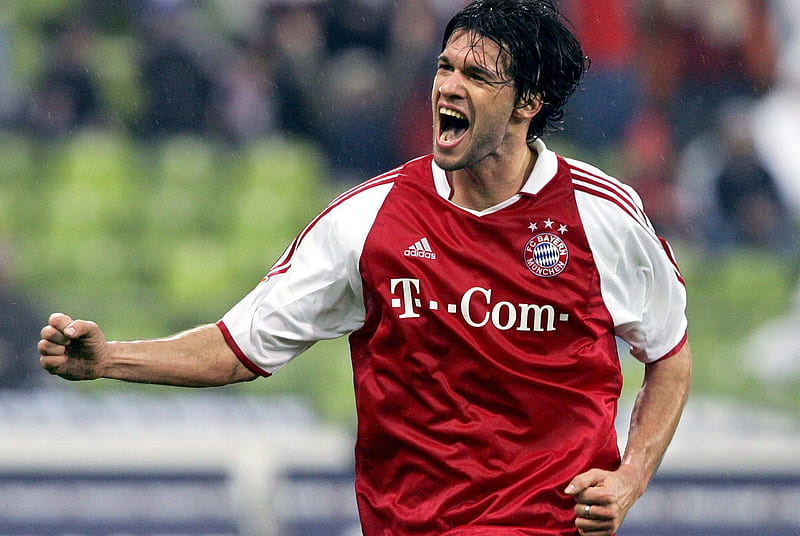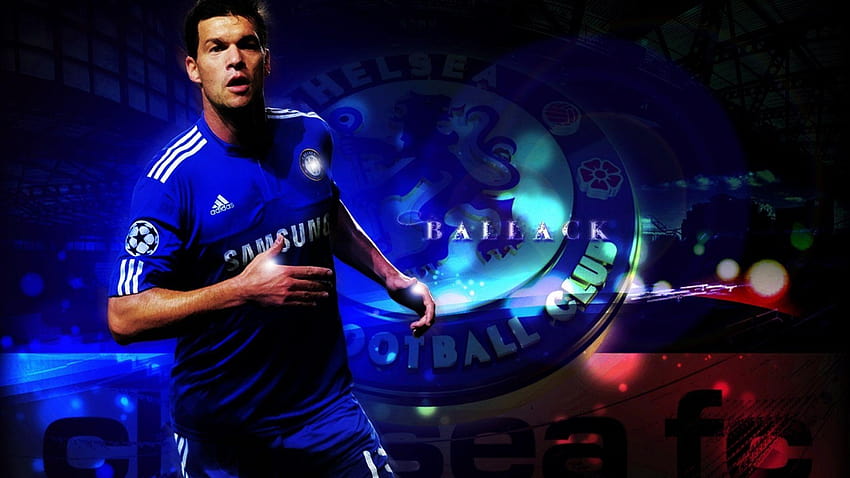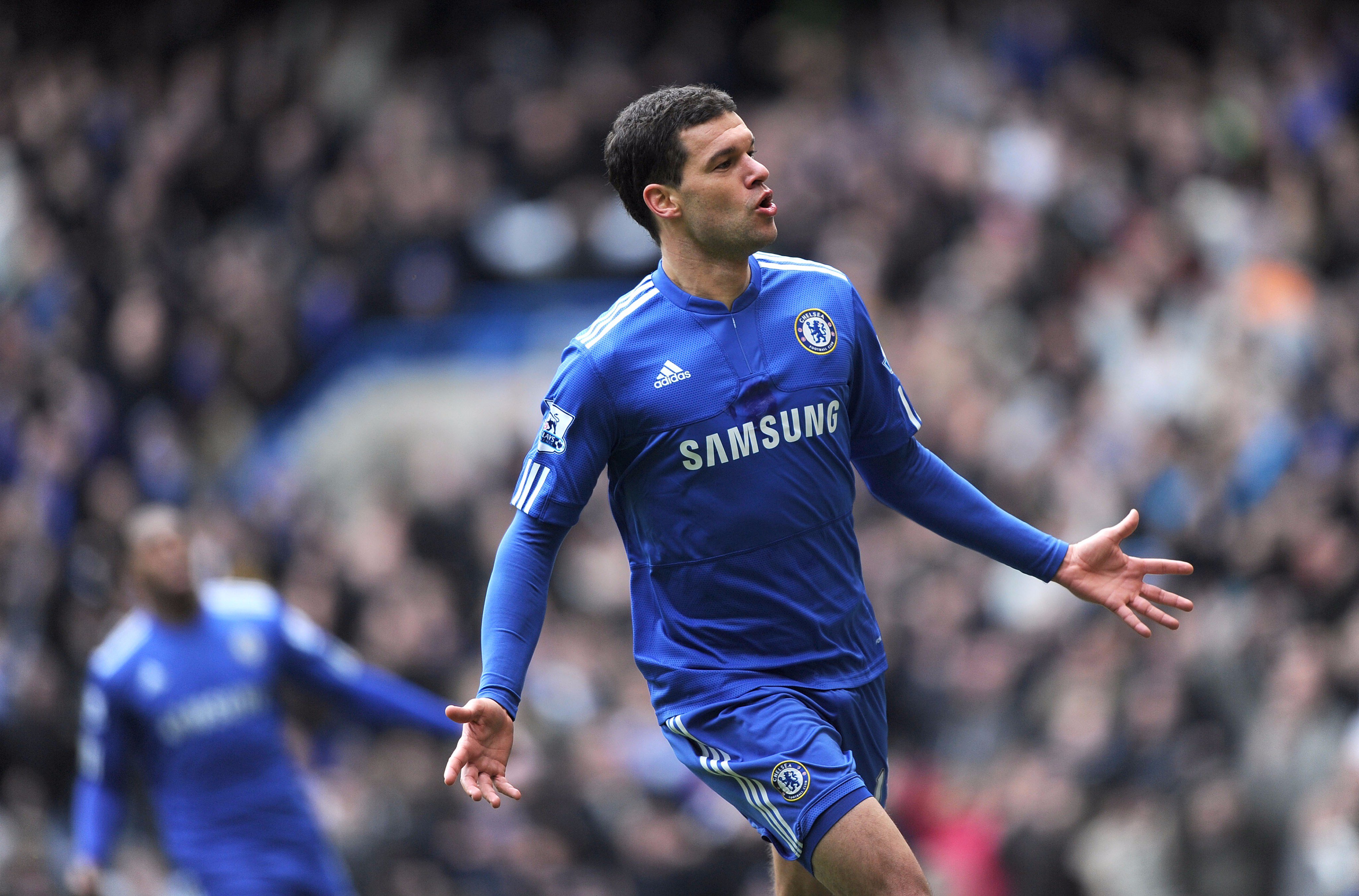Michael Ballack ( Part 1)
Michael Ballack ( Part 1)

Michael Ballack, born on 26 September 1976, is a retired German professional footballer renowned for his contributions to both club and international football. Throughout his illustrious career, Ballack established himself as one of the top goal scorers in the history of the Germany national team and earned numerous accolades for his achievements on the pitch.
Ballack's journey in football began in his youth, where he honed his skills at enterprise sports community BSG Motor "Fritz Heckert" Karl-Marx-Stadt before joining the youth department of FC Karl-Marx-Stadt. He made his debut for Germany's under-21 side on 26 March 1996, showcasing his potential early on.
His senior career took off with 1. FC Kaiserslautern in 1997, where he played a pivotal role in winning the Bundesliga in his debut season. A move to Bayer Leverkusen followed in 1999, where he continued to excel, although the team narrowly missed out on several major titles in the 2001-2002 season.
A transfer to Bayern Munich in 2002 brought further success, with Ballack contributing significantly to the team's Bundesliga and DFB-Pokal triumphs. He demonstrated his prowess as a midfielder by scoring 58 goals for Bayern between 2002 and 2006.
In 2006, Ballack made a high-profile move to the Premier League, joining Chelsea and experiencing immediate success by winning English honors in his debut season. Despite injury setbacks, he played a crucial role in Chelsea's journey to their first-ever Champions League final in 2008.
Internationally, Ballack represented Germany in multiple UEFA European Football Championships and FIFA World Cups. He notably captained the national team from 2004 and played a vital role in Germany's success in reaching the finals of the 2002 World Cup and the Euro 2008 final.
Ballack's career was defined by his passing range, powerful shot, physical strength, and commanding presence in midfield. His contributions to both club and country earned him numerous accolades, including being selected as one of FIFA's 100 Greatest Living Players and winning the German Footballer of the Year award multiple times.
Michael Ballack was born on 26 September 1976 in Görlitz, a town located in Bezirk Dresden, East Germany (now part of Saxony, Germany). He is the only child of Stephan Ballack, an engineer, and Karin Ballack, who worked as a secretary. When Ballack was very young, the family relocated to Chemnitz, which was then known as Karl-Marx-Stadt. It was in Chemnitz where Ballack first discovered his passion for football and began playing the sport. He started his football journey in the local sports community, laying the foundation for his illustrious career in the sport.
At the age of seven, Ballack's parents enrolled him in training with the sports community BSG Motor "Fritz Heckert" Karl-Marx-Stadt. His talent quickly caught the eye of coach Steffen Hänisch, who was impressed by Ballack's advanced technique for his age and his ability to use both feet effectively. Recognizing his potential, Ballack was granted admission to the elite Children and Youth Sports School (KSJ) "Emil Wallner" in Karl-Marx-Stadt.
Subsequently, Ballack joined the more prominent football club FC Karl-Marx-Stadt (later renamed Chemnitzer FC) in 1988. His father's own experience playing second-division football in Germany likely influenced Ballack's early development in the sport.
In 1995, Ballack's performances as a central midfielder earned him his first professional contract. He was nicknamed the "Little Kaiser" due to his playing style, reminiscent of the legendary Franz Beckenbauer, who was known as "Der Kaiser." Ballack made his professional debut on 4 August 1995, during the opening match of the new 2. Bundesliga season, despite Chemnitz's 2-1 loss to VfB Leipzig. Despite the team's relegation to the regional third division at the end of the season, Ballack emerged as a regular first-team player during the following season. He showcased his talent by scoring ten goals for Chemnitz, although the club narrowly missed out on an immediate return to the Bundesliga.
In the summer of 1997, Ballack's promising performances attracted the attention of Otto Rehhagel, the coach of newly promoted 1. FC Kaiserslautern, who signed Ballack as they returned to top-flight football.
In the seventh match of the 1997–98 Bundesliga season, away to Karlsruhe, Otto Rehhagel decided to give Ballack his first Bundesliga appearance, sending him onto the field for the final five minutes of the match. This marked Ballack's debut in Germany's top-flight league. Subsequently, on 28 March 1998, Ballack made his first start for 1. FC Kaiserslautern in a match against Bayer Leverkusen.
During that season, Ballack made a total of 16 appearances for Kaiserslautern as the club achieved a historic feat by becoming the first newly promoted team to win the Bundesliga title.
In the following season, Ballack solidified his position as a regular member of the team, making 30 appearances and scoring four goals in the league. He emerged as one of the side's key players as Kaiserslautern reached the quarter-finals of the UEFA Champions League, ultimately being eliminated by Bayern Munich.
However, on 1 July 1999, at the age of 22, Ballack made a significant move to Bayer Leverkusen for a transfer fee of €4.1 million, embarking on a new chapter in his football career.
At Bayer Leverkusen, Ballack experienced a significant breakthrough in his career under the guidance of coaches Christoph Daum and Klaus Toppmöller. He was given an attacking role in the midfield, which allowed him to showcase his talents effectively. Ballack played a pivotal role in Leverkusen's success, contributing 27 goals in the league and nine in European competitions over the course of his three seasons at the BayArena.
However, Leverkusen's quest for major trophies during Ballack's tenure was marked by heartbreak and near misses. In 2000, Leverkusen needed only a draw against SpVgg Unterhaching to secure the Bundesliga title, but an own goal by Ballack contributed to a 0–2 defeat, allowing Bayern Munich to clinch the title. 
The following season, Leverkusen suffered a series of disappointments, relinquishing a five-point lead at the top of the Bundesliga table in the final three games to finish as runners-up to Borussia Dortmund. Additionally, they lost the UEFA Champions League final 2–1 to Real Madrid and the DFB-Pokal final 4–2 to Schalke 04. This string of runner-up finishes led to Leverkusen being mockingly dubbed "Bayer Neverkusen" in English, while in German, they were referred to as "Vizekusen."
Ballack's individual performances during the 2001–02 season were nevertheless outstanding, as he scored 17 league goals. His contributions earned him recognition, including being voted into the UEFA.com users' Team of 2002 and being named German Footballer of the Year. Despite his achievements, Ballack and his Leverkusen teammates Bernd Schneider, Carsten Ramelow, and Oliver Neuville were also part of the Germany squad that finished as runners-up in the 2002 FIFA World Cup, with Ballack notably missing the final due to suspension.
References
- "2006 FIFA World Cup Germany: List of Players: Germany" (PDF). FIFA. 21 March 2014. p. 12. Archived from the original (PDF) on 10 June 2019.
- ^ "Ballack - Chelseafc.com". Archived from the original on 26 November 2010. Retrieved 31 March 2022.
- a b c d Grohmann, Karolos (2 October 2012). "Former Germany captain Ballack retires at 36". in.mobile.reuters.com. Reuters. Retrieved 17 August 2014.
- ^ "Player Profile". ESPN Soccernet. Archived from the original on 18 July 2012. Retrieved 9 April 2012.
- a b c d e "Michael Ballack". Fussballdaten.de. Archived from the original on 16 February 2010. Retrieved 9 May 2013.
- a b c d e "Michael Ballack: a nearly man or an undisputed midfield genius?". The Guardian. 5 June 2013. Archived from the original on 16 February 2010. Retrieved 6 June 2013.
- ^ "Michael Ballack privat: Ist der DFB-Star nach der Trennung wieder zu haben?". news.de (in German). Leipzig: MM New Media GmbH. 5 August 2021. Retrieved 13 December 2021.
- ^ "Chemnitzer FC – VfB Leipzig". Fussballdaten.de (in German). Archived from the original on 16 February 2010. Retrieved 4 July 2011.
- ^ "Karlsruher SC – 1. FC Kaiserslautern". Fussballdaten.de (in German). Archived from the original on 16 February 2010. Retrieved 4 July 2011.
- ^ "1. FC Kaiserslautern – Bayer Leverkusen". Fussballdaten.de (in German). Archived from the original on 16 February 2010. Retrieved 4 July 2011.
- ^ Marcel Haisma (15 January 2010). "Michael Ballack – Matches in European Cups". RSSSF. Archived from the original on 16 February 2010. Retrieved 4 January 2013.





































